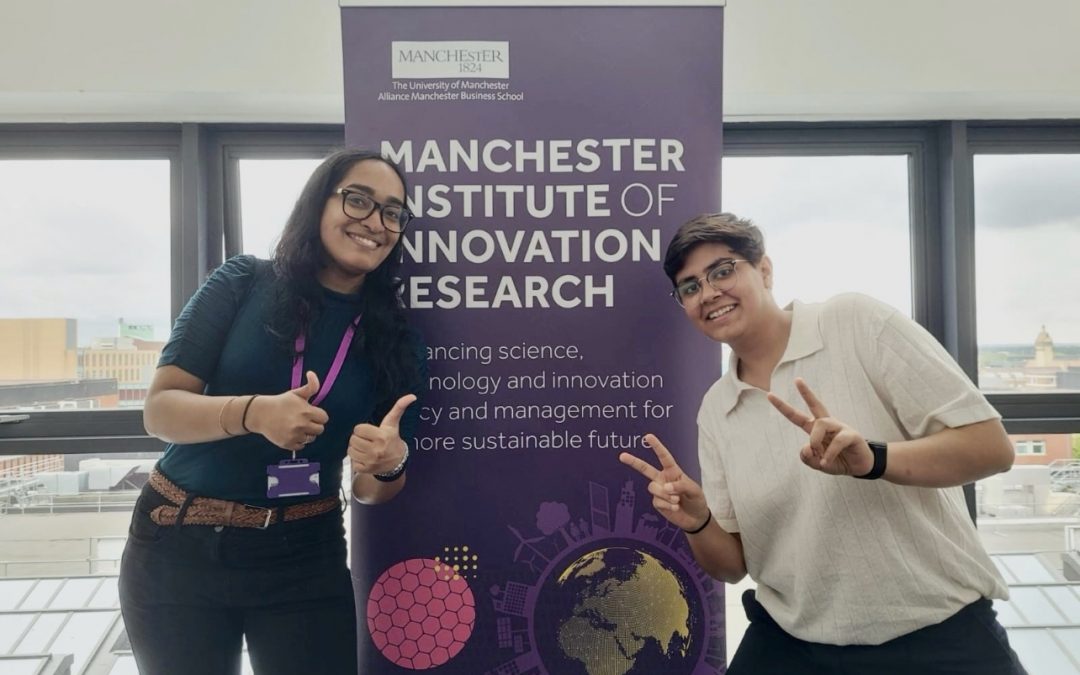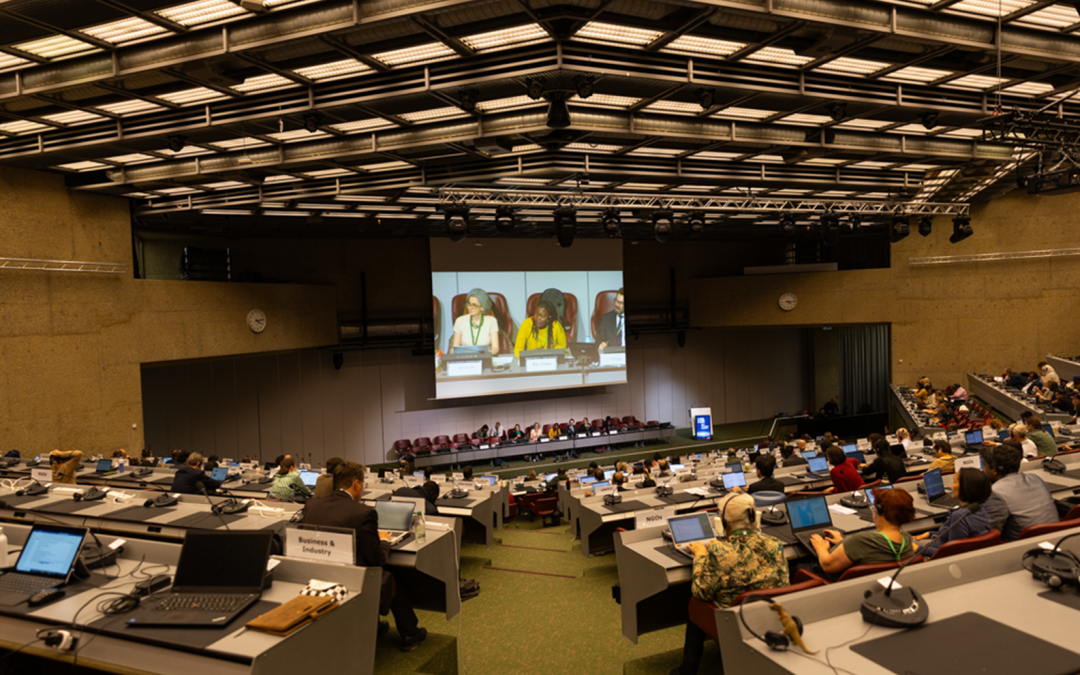

The Geopolitics of International Research Collaboration and the Impact of Research Security Concerns
Prof’s Andrew James and Kieron Flanagan explore how geopolitics and research security concerns shape international collaborations, highlighting key insights from recent workshops and emerging trends.
Introducing the STIP Compass Dataset: Exploring research potentials from STI policy data
MIOIR recently had the pleasure of welcoming David Howoldt, Science & Innovation Policy Analyst at the OECD Directorate for Science, Technology and Innovation (STI).

Women in innovation expanding the invention archives of the UK
Prof. Cornelia Lawson and Dr. Xin Deng’s UK DGCI project builds a database to track UK PhD graduates’ innovation contributions.

Getting to know our New Research Interns: Bahaar and Sanya
This summer MIOIR welcomed two students undertaking the ‘Learning Through Research Internship’ with Professor Cornelia Lawson and research team, working on the project “UK Doctoral Graduates’ Contribution to Innovation”.We welcomed them to the department with an...

Insights from Early Career Scholar Diletta Pegoraro’s EU-SPRI Visit
Diletta Pegoraro reflects on her impactful visit to MIOIR, highlighting how the Eu-SPRI-funded circulation programme advanced her research and fostered valuable academic connections.

Reef Revolution: How Implementation of 3D Printing Can Promote Sustainable Coral Restoration
As Indonesia’s coral reefs face threats, it is essential to find solutions to protect the marine ecosystem. Adopting innovative methods like 3D printing for coral reef restoration presents a promising answer. MSc IME student Nisrina Iswara argues that acknowledging the complexities involved and fostering responsible governance is essential for ensuring a sustainable and impactful outcome.

Unlocking the Future: Exploring Facial Recognition’s Role in Retail Evolution
Exploring the potential of facial recognition in retail, MSc IME student Yalin Pang delves into its opportunities for enhancing customer experience and operational efficiency, and for reaching SDGs. However, as an emerging technology, risks and ethical dilemmas exist, and robust governance strategies should be developed.

Welcome to MIOIR Researcher: Liangping Ding
Meet Dr. Liangping Ding, our newest Research Associate at MIOIR. Discover her passion for AI-driven research, bridging academia and industry, and her exciting plans within our community.

Discussions on Benefit-Sharing and Data Governance
This blog post summarizes and reflects on discussions at the Convention on Biological Diversity’s (CBD) first meeting of the Ad Hoc Open-ended Working Group on Benefit-sharing from the Use of Digital Sequence Information (DSI) on Genetic Resources, which took place on...

Low-carbon reorientation in steel, oil refining and petrochemical industries
This blog summarises the findings of the 2-year research project ‘Low-carbon reorientation in steel, oil
refining and petrochemical industries’ that was funded by the Industrial Decarbonisation Research and
innovation Centre (IDRIC).
